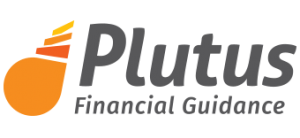Forward thinking: Contingency plans and protection for your family
At the peak of our careers, we’re often focused on buying luxury homes, expensive cars and planning island getaways. Its important to have a contingency plan for protection for your family.
We rarely stop to think what will happen to our families if the primary income stops suddenly.
A Sydney Morning Herald article regarding Jonah Lomu demonstrates this.
“The former All Black Rugby star made an annual income of $3.5m from endorsement and sponsorship alone. In 2003, Jonah was the $10m man, the only rugby player to make the National Business Review’s rich list of top sporting personalities. However, a month after his death at 40, his family established a public begging bowl to help provide funds for his sons.”
This unfortunate story reminds us that public perceptions and realities do not always align.
While we’re making good money and living our ideal lifestyle, do we ask ourselves, what happens when work stops? What if the business stops producing positive cash flow?
Is there a contingency plan?
What will happen in an emergency? What strategies are in place to protect our families?
The Definition of Contingency Plan:
“A course of action in place to respond effectively to a significant future event or should expected results fail to occur.”
When everything is going smoothly, which of us are forward thinking enough to put protective strategies in place? In my role as an advisor, I have seen the good, the bad and the ugly.
4 things you can start doing today, to look after your financial health and protect your family in the future.
- Start Saving;
Depending on your circumstances and objectives, try to save at least 10% to 15% of your income. - Think About Investing;
Whilst saving achieves short term security, try to invest towards medium to long-term goals (see article on early retirement). - Look at Investment Options;
Ideally, hold investments both inside and outside of superannuation. However should external investments be difficult, your superannuation balance will be a safety net for retirement. - Give Superannuation The Attention It Deserves;
It is a powerful tool to achieve financial security and wellbeing in the future. Ensure you have a decent balance at the end of your career.
Note that those who are self employed are not bound to make compulsory superannuation contributions and do not receive employer superannuation contributions. As a result, superannuation balances may be so low that cash flow may pose a problem for retirement or even prevent you from retiring.
Start making informed decisions about appropriate risk management strategies today.
Should the main income provider be unable to work for a period of time, how will the family be provided for? At the end of your working life, where will the money come from? Risk management tools such as personal insurance may provide relief in times of stress and uncertainty.
Life is full of surprises. Think forward. Have a contingency plan in place.
Photo by Jenn Evelyn-Ann on Unsplash
